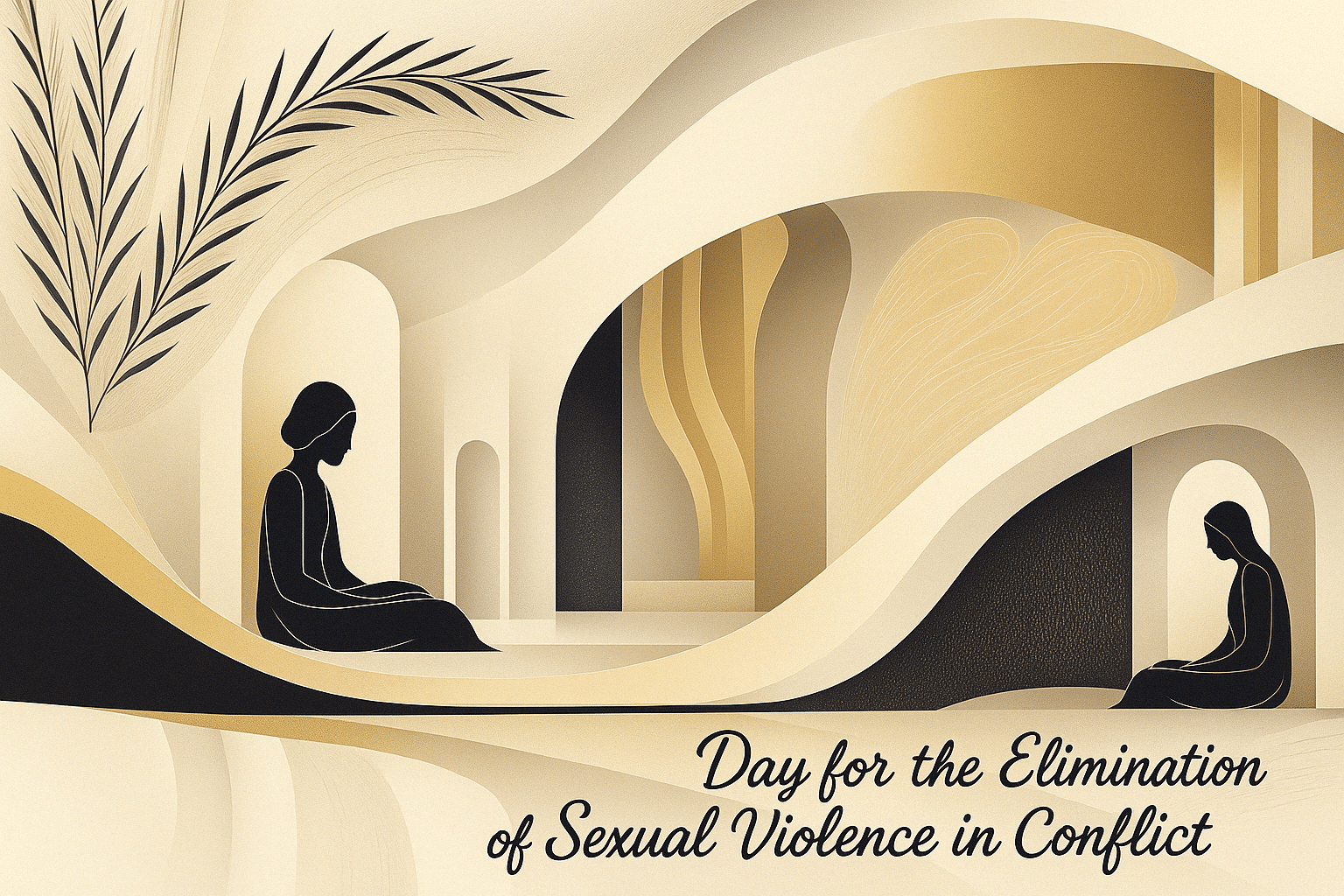What is International Day for the Elimination of Sexual Violence in Conflict?
International Day for the Elimination of Sexual Violence in Conflict is held every year on June 19 and is observed worldwide. The day draws attention to the use of sexual violence as a weapon of war and the lasting trauma it causes to survivors, families, and entire communities.
This day raises awareness of the need to end impunity for perpetrators and improve support for victims. It calls on governments, peacekeepers, and international organisations to prevent sexual violence during conflict and ensure justice and protection for survivors.
In the Netherlands, the day is marked by human rights organisations, academic institutions, and NGOs. Events often include panel discussions, film screenings, or awareness campaigns focusing on international law, survivor testimony, and post-conflict justice.
History and Origin
International Day for the Elimination of Sexual Violence in Conflict was established by the United Nations to commemorate the adoption of a Security Council resolution on conflict-related sexual violence. June 19 was chosen to honour the courage of survivors and all those who fight to end such crimes.
The resolution recognised that sexual violence in conflict is not random, but a calculated tactic used to control, punish, or destroy populations. The day also honours the resilience of victims and the frontline defenders who work to support them, often at great personal risk.
Since its creation, the day has become a key moment for advocacy, research, and international cooperation. It is used to highlight specific conflicts, address gaps in justice systems, and promote survivor-centred responses.
Who participates in International Day for the Elimination of Sexual Violence in Conflict?
- Survivors and advocates: Individuals with lived experience share their stories and push for policy change.
- Human rights organisations: Groups raise awareness, launch campaigns, and document violations in conflict zones.
- Policy makers: Government officials and UN bodies commit to prevention, accountability, and survivor support.
- Journalists and researchers: Experts publish findings and shed light on underreported cases of violence in war zones.
- Educational institutions: Universities and schools organise events to inform students about human rights and international law.
Slogans and Themes
International Day for the Elimination of Sexual Violence in Conflict is often linked with calls for justice, prevention, and survivor-led support. Themes focus on ending impunity, strengthening international law, and rebuilding trust in post-conflict communities. Slogans include “Justice for Survivors,” “Break the Silence,” and “End Rape in War.” These messages aim to change how sexual violence is viewed and addressed during and after conflict.
Colors, Symbols and Patterns
Colors
- Purple: A color often associated with dignity, justice, and support for survivors of violence.
- Black: Used to symbolise mourning, remembrance, and the seriousness of the issue.
- White: Represents peace, safety, and the vision of a world free from conflict-related sexual violence.
Symbols
- Broken chain: A symbol of freedom from violence and oppression.
- Torch: Stands for truth, justice, and the courage of survivors and defenders.
- Olive branch: Often used to represent peacebuilding and reconciliation after war.
Patterns
- Barbed wire imagery: Reflects confinement and oppression, often used in visual campaigns.
- Ripple effects: Symbolise the widespread impact of sexual violence on families and communities.
- Justice scales: A visual reminder of the need for accountability and legal action.
Most used hashtags
- #EndRapeInWar
- #StopSexualViolence
- #JusticeForSurvivors
- #ConflictAndViolence
- #SurvivorVoices
Why is International Day for the Elimination of Sexual Violence in Conflict important?
International Day for the Elimination of Sexual Violence in Conflict is important because it gives visibility to a form of violence that is too often hidden, denied, or ignored. Sexual violence in conflict causes lifelong harm. It destroys families, silences survivors, and leaves entire communities in fear. The day reminds the world that these crimes are preventable and that survivors deserve justice and healing.
It also highlights the importance of listening to survivors and including them in peace processes and justice systems. Their voices carry knowledge, strength, and insight that are crucial to real change. Ending sexual violence in conflict requires action, not just statements.
This day reinforces the responsibility of the international community to prevent these crimes, support those affected, and hold perpetrators accountable, no matter their rank or power.
Features
June 19: Day for the Elimination of Sexual Violence in Conflict
Why do you keep falling for the same type?
Read the article Lovemaps: the hidden blueprint of our love.

